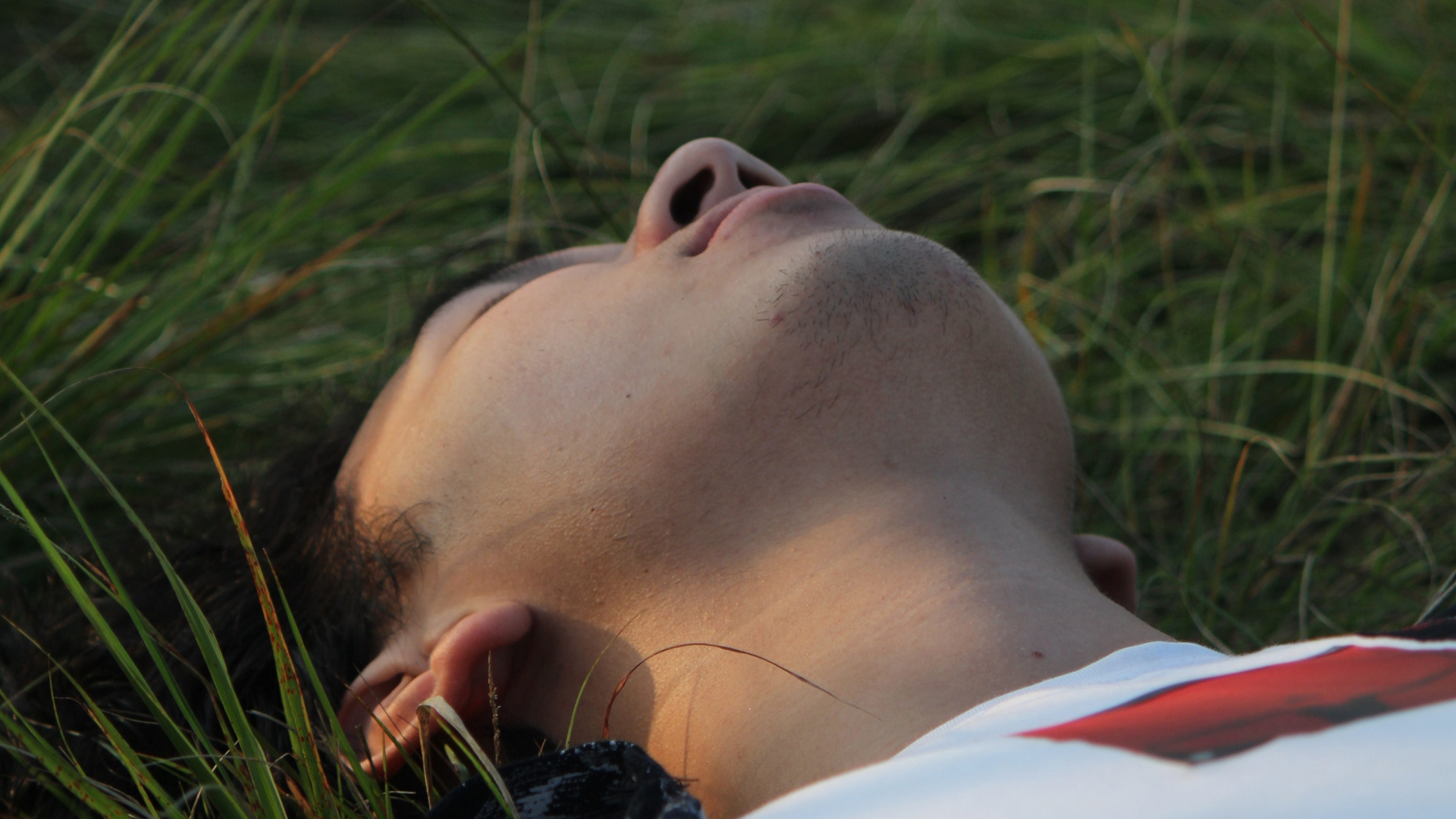
Hopping With Bunny Michael
Talking to the Creator of All Things Higher Self
Scan to download

October 30th, 2023
The poet, writer, artist, and activist talks to Michael Costain about the fight to protect a beloved outdoor space in New York City.
Green spaces that exist as a site for gathering all too often become more about a fight to protect them, rather than a place of communion. The East River Park, one of the most essential green spaces and community gathering spots of the East Village in New York City, is one such place, and Eileen Myles has something to say about it.
As Earth Day approached, I called the iconic writer of many forms—poetry, performance, and a previous contributor to Mal Journal, among many other esteemed publications—to discuss their turn towards activism. This is a decisive moment for the park, and with the future of its existence being called into question, Myles is one of many locals who are organizing for the park's protection. In the interview below, Myles spoke about the collective spirit of the fight, and the ways politics and protest can become their own form of poetic expression.
The East River Park is in my neighborhood, the East Village in New York City. You could more appropriately call it East River Half-a-Park, as the city has destroyed half of it.
During Hurricane Sandy the park was flooded for two hours, and the public housing across the street also flooded. It seems that water didn’t come from the park but rather from further uptown; the city has presented the flooding of public housing as the issue, that something has to be done so that it wouldn’t happen again. In the twelve years since they’ve done nothing to protect that public housing…their attention is very specious.
The city asked people what they wanted. They had them speak about their homes, neighborhood, and green space. We collectively came up with a solution that worked for those people—as well as me personally—and then the city threw that solution out.
Nothing came out of those conversations except for videotapes and photo ops. It was a moment of deep betrayal: being asked to speak on something you care about, and in fact, you’re just being asked to pose, particularly if you have a brown face.
Climate is the new disaster capitalism. Every fossil fuel company is green, green, green. It has become a new PR opportunity, and a new way to get your hands on public funding.
One thing that is weird about parks in New York is that people come to New York for gems such as Central and Prospect Park, but these parks are basically privately funded. They’re like the Harvard and Yale of New York City Parks: they have endowments. The current head of New York City Parks, Sue Donoghue, was a fundraiser for Prospect Park, and in her the position is essentially a tourist attraction fundraiser. She couldn't care less about parks in poor neighborhoods. We haven’t had an environmentalist at the head of our parks in a long time.
In so many ways, we don’t know what we’re gonna get. In other locations in the city, like Two Bridges, closer to Chinatown, they were doing a public project and ran out of money. When this happened, they brought someone in for funding and it became public-private. Public-private is the sound of doom. As soon as they call it this, developers are coming in and they are a source of revenue. And by the time they’re finished helping the city they say, “we’ve got to make our money back,” which for them means high rises.
Not entirely. They’ve already supposedly signed a plan for a giant Olympic-sized pool in the East River, right off the coast where they’ve demolished the amphitheater and all the most glorious old trees and public spaces. That is certainly not for the people of the Lower East Side. What sense does it even make to be putting a pool in a river you’re worried about flooding?
I’ve always experienced writing as the real free space in my life. I’ve thought of the mental studio in my life as a quiet place that reflects a busy place. The space where I get to stop the hundred thousand advertising messages, and I take the anxiety in my life and get to reshape it.
And I’ve always considered myself a politically minded person, and politics has come into my work, just maybe not as a hands-on activist. The space of activism is a utopian space that I’ve never lived in before, and I love it. I’m sure I’m not always the best…I’m known for being a citizen, but I’m still a bit of a self-centered writer.
It’s a lot like when I ran for president. What I discovered was that the poet in me, the art writer in me—all the kinds of writers I am—could actually use political information and share it in the same way that I can with whatever it is that makes a poem. Once I become passionate about something, that something and me are not so separable. It becomes a place of very vivid information gathering, where I’m finding other people who care vividly about the same thing.
The original group was East River Park Action. We did a lot of postering and fundraising through them in the beginning. They were the 501C that accepted the fund when we were getting our legal stuff together. Out of that group came the group 1000 People, 1000 Trees that was much more of the activist wing. Some people involved in the fight worth mentioning include Emily Johnson, an indigenous choreographer and dancer, the photographer Alice O’Malley, Sarah Wellington.
They started cutting trees in January, and have continued since, to supposedly fix something on the southern end of the park. At that time I hightailed it to Marfa. I just couldn’t take it. And after years of being a runner, my ankles are kind of messed up, so I’m not the ideal tree climber. I tried climbing one day and realized I didn’t think I had the strength in my ankles to get back down. But Sarah, she’s been down there every day doing a watch of the park and reporting what was going on, who was being arrested, and so on.
We have to rethink how we’re fighting. I think the big thing we should look to is the legal case for the personhood of trees and parks. Even if these cases are failing, it’s a very important question. If a corporation is a person, how is a lake not a person? I think we need to be thinking and posing interesting legal questions, really questioning what public lands are in this country.
One important thing I’ve learned about the first city planning in America is that it was basically to oppress Indigenous people. The first plan was to get them off the land. That is a deep part of our history. Our economy is based on slavery, and our city planning is based on extermination and genocide. And whatever forces are behind the destruction, the destruction of our planet doesn’t help anybody.
There was a yoga teacher we worked with named Murphy Cox-Nicol. He was around for a lot of our activism and with whom we did these great collective dance pieces. He committed suicide—right before they cut down the first cherry trees, he jumped out a window. I think that losing that green space really sent him someplace he didn’t know to come back from. There was another person in the neighborhood, always in the park with their kids, who killed one of them, and another person hung himself on a tree in the park.
Also, right here in New York City housing, there’s one of the highest asthma rates in the city. We’re creating a completely endangered community. Everybody’s health is in danger.
The park was always a place I would go to with my girlfriend. It was an extension of our living room. There was romance and there were dance parties.There was a neighbourhood DJ, DJ Curly, a woman who was just out there with her speakers. It was great because it was people from the neighborhood but also people from the art world. These parties were open to everybody as free public events. It drew people in and together on Saturday nights in the East Village. I came to New York in the 70s and this is just the way it was. New York was so abundant and in our control. This park was really one of the last of those vernacular spaces. And I’m sure there was lots of sex down there.
Lots of light stuff, just softcore…I don’t know if I had hardcore sex down there. But it was always a part of my romantic life. I’ve never had a relationship where we didn’t walk down there regularly. What stands out to me is being in a new relationship and walking down to the park with my girlfriend and just being a part of it.
Early on there was this wildness. I didn’t even know of the park when I first moved to the neighborhood. My whole perception of romance and gayness was the West Side. We would always go to the piers. That was the 70s and 80’s. When that was taken away the East River Park was the next frontier. And the fact that that’s gone from Manhattan makes it an antiseptic place—a less dirty, sexy place.
Well, not being a gay man, I’m not sure, but I think that was happening there. I mean no dance party doesn’t end with people having sex. It’s a broken love story. I think the destruction of the East River Park is the destruction of the heart, and the loins, and the legs of New York. We need this. It is our body. Our bodies need to be wild.
I’m really happy to be a part of it. It’s changed me. I feel more at home here than ever before. I never understood New York City before now. Or how the government works. All of this has been really good for me, and I think it’s good for everybody to think about.
Eileen Myles (they/them, b. 1949) is a poet, novelist and art journalist whose practice of vernacular first-person writing has made them one of the most recognized writers of their generation. Pathetic Literature, which they edited, came out in Fall of 22. Their newest collection of poems, a “Working Life,” is out now. Myles’s fiction includes Chelsea Girls (1994) which just won France’s Inrockuptibles Prize for best foreign novel, Cool for You (2000), Inferno (a poet’s novel) (2010), and Afterglow (2017). Writing on art was gathered in the volume T_he Importance of Being Iceland: Travel Essays in Art_ (2009). They live in New York & in Marfa, TX.

Talking to the Creator of All Things Higher Self

An interview with Dean Spade, author of "Love in a Fcked-Up World: How to Build Relationships, Hook Up, and Raise Hell Together."

“Chosen family is about the people who make the world bearable in all its complexity.” —Leor Miller